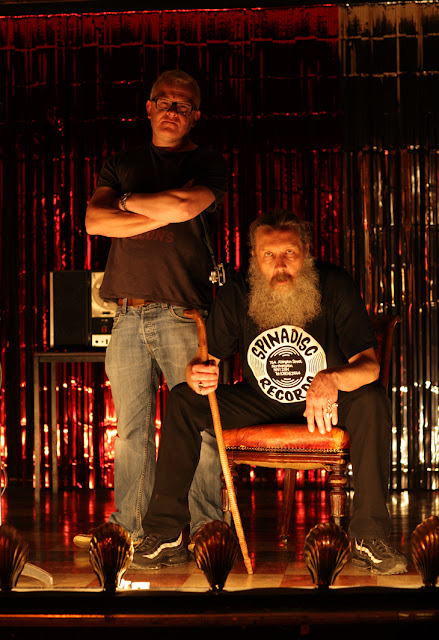
Excerpts from an interview
originally published in The Stool Pigeon (here)
The Stool Pigeon: As much as this could either be a cliché or a truism, to what extent do you feel that taking LSD as a teenager acted as a catalyst or a key as it were?
Alan Moore: Of course you can never say what would have happened if it had gone otherwise. I would say that it had a tremendous impact on my life. When I first took acid, I saw a quality of hallucination that was only like that for a few years. Very much like a Martin Sharp [of Oz magazine] illustration. It was very liquid and drifting. But then, a few years later — I’m sure that the acid was exactly the same — it was the landscape that had changed. The experience had become more crystalline and hard-edged. A bit more paranoid. But, yes, it made me realise that actually reality was a state of mind and that, as your mind could change, so could your reality. This was something that would have a big influence on my later thinking, and I also think I realised that my perceptions about art and writing and music when I was in those sort of states were wonderful. But it didn’t mean that I liked everything — far from it. I became quite critically acute, but I would enjoy the piece of art, whatever it was, on a much more profound and glowing level. So I think I probably resolved to try and write or draw or create for people in the same kind of condition as I probably was when I’d created those words. It’s a bit like Jason Spaceman and Sonic Boom from Spacemen 3 back in the day when they wrote ‘Taking Drugs To Make Music To Take Drugs To’. I thought, ‘Yeah, that’s an elegant formula and I’m sure that an awful lot of art in the history of the world has been created in this way.’ I’m sure that’s what Wilkie Collins was doing and I’m sure that’s what Samuel Taylor Coleridge was doing.
SP: Did you ever see the really bad side of acid? I don’t just mean feeling a bit weird or paranoid, but having the full-blown simulacra of paranoid schizophrenia?
AM: Not quite that bad, but I did have plenty of bad trips. I laid off the acid around the time that I got expelled from school. I’d already done 50 or 60 trips in a year up to that point and I was probably starting to have some strange ideas. But this was only ever recreational. In the West, it’s always going to be in the context of getting out of your head. Say in the case of eighties’ rave culture… you would get kids going to raves and having a blissful experience — an experience of satori [Buddhist term for enlightenment]. But after the weekend was over, they would have to go back to the council estates that they were trying to escape from. They were still there. And for some of them a chasm opened up between their desire and their circumstances that they fell into and didn’t get back out of.
SP: Do you still take acid?
AM: I take magic mushrooms. The first time I combined them with a rudimentary magical ritual… well, that was the eye-opener. I suddenly realised that the combination made the magic work and made the drug much, much stronger and more profound. And since then I’ve only taken mushrooms in ritual circumstances. There just doesn’t seem to be any point in doing it otherwise.
Read the full text
HERE.



